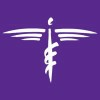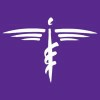Thirty-three DMU students spent spring break on medical service trips, treating hundreds of patients in the Dominican Republic and Biloxi, Mississippi. A few students stopped by the Admissions office to share stories from their amazing week-long opportunity. A common theme emerged talking with the students: they all share a passion for providing care in underserved communities.
What prompted you join the medical service trip?
Sampson Boham, D.O.’18 (Dominican Republic): I wanted to go on this trip because I grew up in a country that is very much like the Dominican Republic: short on medical supplies and few reliable medical facilities. Mostly, I was on the receiving end of medical mission trips when I was young. This was my chance to be the one giving the medical care to struggling families and communities. I knew I would learn more of the “street smarts” of medical care and get out of the books for a bit.
Julian Hernandez, PA’16 (Dominican Republic): I have always had a passion for providing aid in underserved communities. I enjoy going to those places where not many are willing to go. Some of my past experiences with the military and my undergraduate school helped solidify this passion. When it came time to put my name on the list for the DMU mission trip, it was a no-brainer. One of the reasons why I chose to come to DMU is because of our global work. Thus, I was very pleased to volunteer and even more excited once I was accepted onto the team.
James Renier, D.P.M.’18 (Biloxi): One of the main reasons I chose to become a physician was my desire to do mission work. In undergrad, during my semester abroad, I volunteered at an AIDS orphanage in the townships of Port Elizabeth, South Africa. Here we took care of children with HIV/AIDS and went out into the communities to distribute ARV medications to family members. Our team cooked food for the malnourished and provided simple over-the-counter medications for the sick. Working with the poorest of the poor really taught me about myself. I learned how to not only work with a completely different culture, but more importantly, how to learn from another person. The lessons people in the villages taught me were more meaningful, I felt, than what I had to offer. How could I ever repay them? I went on the Biloxi service trip because I wanted to not only make a difference in the lives of the people we helped, but more importantly make a difference for those in my future practice.
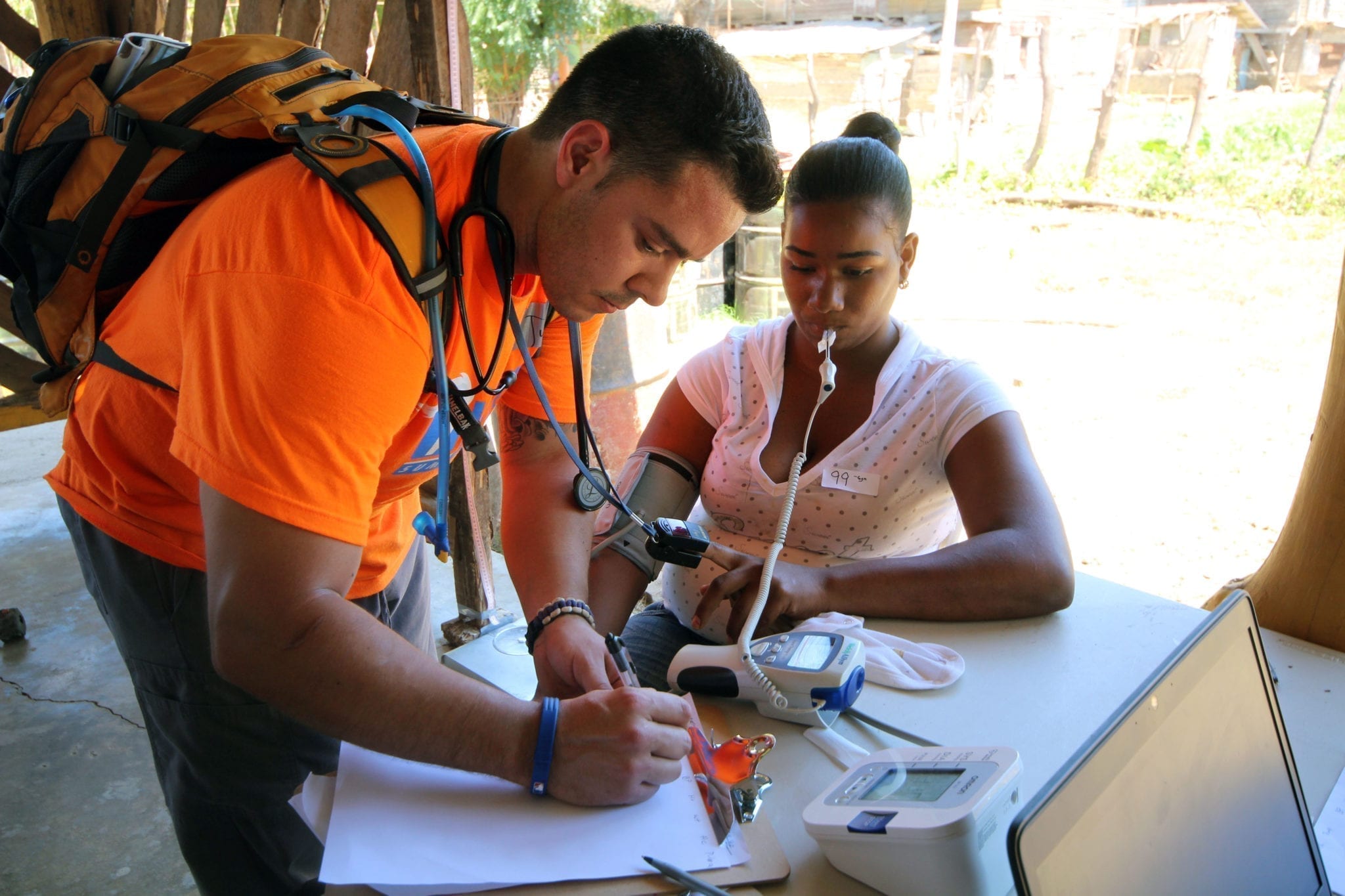
What was a typical day like?
Boham: We woke up early, packed and drove to the community. Then we kind of split up into groups and each day we had different duties at the clinic. Some students worked alongside doctors listening to patients, diagnosing and prescribing treatments. Other students registered patients and assisted them while waiting to see the doctors. Another set of students processed lab work. We saw over 500 residents and the people were so genuinely excited to see us; some even cried. By the end of the week we were pretty exhausted, but just seeing the happiness we brought to the community made it worth it.
Hernandez: First of all, I would wake up early in the morning to ensure I had my fresh cup of coffee. Then, we all would have breakfast together and receive our assignments for the day. We would then get on the buses and head over to one of the locations where the clinic was to be set up for the day. Once we arrived, we would set up each station and begin to work shortly after. Sometime in the middle of the day, each person would be given time to have lunch and then head back to their assigned position. At the end of the day we would pack our equipment, load the trucks and do a general clean-up of the area. Once we arrived back at the hotel, some of us would be assigned to resupply the equipment needed for the following day. The rest of the group would have free time until dinner, where we would regroup, eat and share some of the experiences we had during the day. After this time of “reflection,” each of us was free to enjoy the breeze and beautiful star-lit evening the Dominican Republic had to offer. Wonderful memories were made during this trip and I am grateful for those, as well as the friendships I was able to establish.
Renier: We stayed at a Boy Scout camp in the heart of Biloxi with several other universities doing more labor-based service work. We began our days usually at the free clinics. Our time there consisted of everything from discarding expired medication in the pharmacy and working in the triage center taking histories and vitals to being in the rooms with the physicians as an assistant. In the afternoons, we worked to raise health awareness in the community by putting presentations on at local community centers, attending health fairs, running blood pressure booths and educating individuals on diabetes. Every day was different and it was wonderful to see how welcoming the community was to a group of medical students they had never engaged with before.
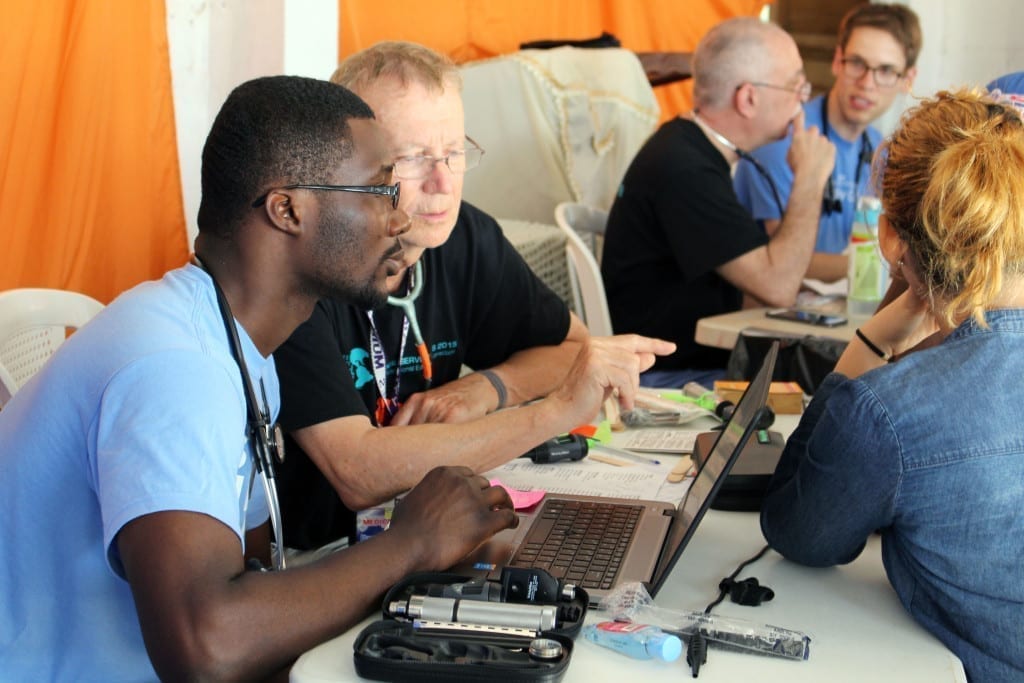
What surprises did you encounter?
Boham: Since I come from Ghana, I thought I had seen it all before. However, I was working with Dr. Karen, a dermatologist, one day and a woman came in with very severe cancer. Dr. Karen showed me how to diagnose this particular type of cancer by reviewing the patient’s medical history and performing a physical examination. We looked for and palpated the affected tissues, and ultimately confirmed the cancer through lab tests. We just received word from Timmy Global Health that since we referred her, she is now receiving proper treatment. There were several other smaller occurrences during physical examinations where I was able to get a broader knowledge of what are considered “normal” cases, guided by the doctors we worked with.
Hernandez: I don’t believe I was “surprised” by many things. Our group leaders did an amazing job at preparing us prior to our arrival to the DR, and upon arrival to the country they continued to work hard to ensure we were as informed as possible. Also, we have a saying in the military, “prepare for the worst, hope for the best.” So, I was not as surprised as I was pleased by the entire experience. I cannot speak highly enough of my time in the DR with my DMU team!
Renier: While at the Boy Scout camp, we learned of an amazing woman who made it her personal mission to save the oak trees along the shoreline. Something so small turned into a massive project. These trees were not expected to survive Katrina and by re-establishing the root structure and taking fresh water to rid the leaves of salt, she ended up saving thousands of old trees along the Mississippi shores. To think that one person made such a difference went to show the power of service in a community like Biloxi. The impact this woman made for her community inspired several others to look at what they could do. Today, Biloxi has progressed immensely since the hurricane due to the selfless acts of volunteers around the US. It was an honor to partake in such an effort.
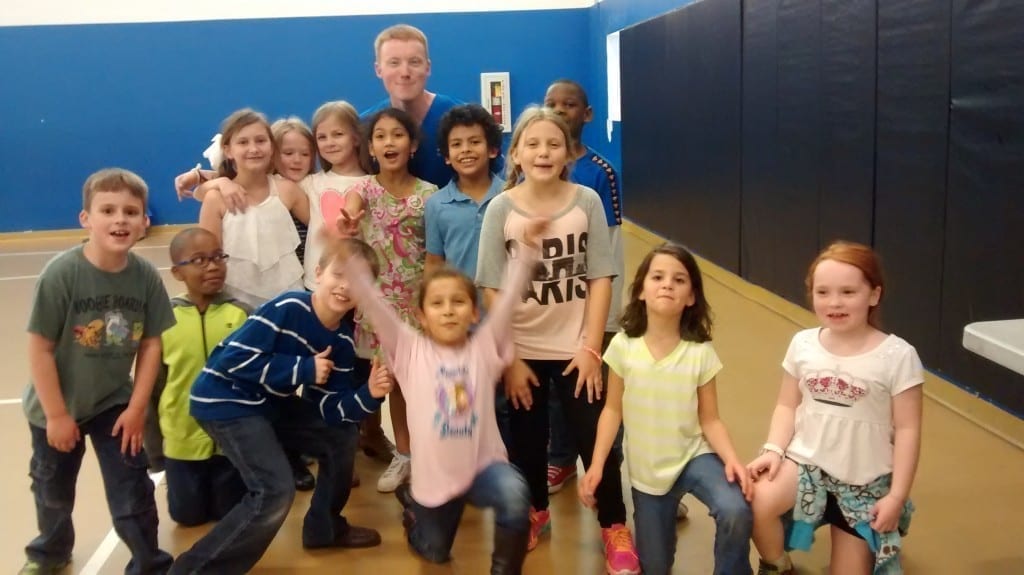
What was your favorite experience from the trip?
Boham: It is really hard to pin down just one favorite thing. Overall, I was really glad to see the method of osteopathic manipulation being used on our trip. This was the first time that our DMU students brought an OMM table along, so it was quite exciting to practice this particular aspect of my medical education on real patients. Also, one of the duties we were assigned at the clinic included working alongside a couple of Drake University Pharm.D. students and a pharmacist, which as a first year student was a great introduction to pharmacology and gave me a great appreciation and understanding of the dosages and forms of medications.
Probably the most rewarding part was getting the chance to form lasting friendships with the other DMU students. Especially when on the last day of our trip I was mistaken for a Haitian — there is a large population of Haitians that live in the Dominican Republic — and nearly every encounter began with me trying to explain that I don’t speak Creole. We all found this quite amusing.
Hernandez: My favorite experience during the trip was during one afternoon working with Laura Delaney, one of the two physician assistants on the team. Mrs. Delaney is a pediatrici PA and thus we were seeing most of the pediatric patients, and at times, some of the parents. On one occasion, one of the mothers — a middle-aged woman — came complaining of flu-like symptoms. We then began to obtain some of her medical history, and with each question came a different and new concern. I remember like it was yesterday, seeing Mrs. Delaney look at me and asking: “Is this something that we can handle?” My immediate response was: “Of course.” After one year of PA school there were only a few things that I felt I could not handle, and in my naïve mind this was not one of them.
But, oh, how wrong I was! I began to do a physical exam and noticed lower extremity edema, wheezing in the lungs and something just “not right” about her heart sounds. I reported my findings to Mrs. Delaney, and this time she did not ask if this was something we could handle. She immediately turned to one of the physicians on our team and asked if she could evaluate the patient further. The physician agreed and saw this patient. I don’t remember the exact list of diagnoses, but I do remember congestive heart failure and a heart murmur being some of the items on the list. This was my favorite experience because it brought together so many teachings. For instance, I remember one on my classmates sharing with the class that he once heard that “being a PA is like being a football player. One must know when to pass, when to punt and when to run with it.” But I would go as far as to say that being a health care provider in general is like being a football player. During the trip, I saw physicians consulting with their colleagues and asking each other questions. I noticed some of the physicians asking Laura, as well as the OB/GYN PA on the team, questions in relation to children or women’s health. I remember seeing some of the providers asking the dermatologist a few questions from time to time. I remember working together as a team trying to ensure we were doing the best we could for each patient we saw during our time in the DR. This has been, and will continue to be, the biggest impact on me. It taught me that medicine is about working as a team where we have to let go of our egos, where we should not be afraid to ask questions and, most importantly, to recognize that in times when things just don’t add up, it is okay to ask for help.
Renier: Throughout the week it was encouraging to see the teamwork of the DMU students that went on the Mississippi domestic service trip. More impressively, the feeling of appreciation and support from the community meant a lot to each of us. Going to a community with a deep history of hurt from Katrina opened our eyes to how devastating this storm actually was to these families. The group realized that providing just a weeks’ worth of assistance made you feel like you were making a difference in the community. It was very apparent that one does not have to go international to find a need in the community.
I will not forget these people or the lessons they taught. Flourishing after such devastation and being able to be better because of it made me reflect on my own life. Performing cheerful service and learning about the culture of this rich community will be something I will cherish and incorporate into to my future practice. I look forward to the day where I too can consistently donate my time each week as a physician.
Will you be incorporating more global health work into your time at DMU?
Boham: Definitely! My goal is to partake in the trip next year, even though I am not sure where they are going yet. I may also try to complete some longer mission trips in the summers to my home country, Ghana.
Hernandez: Unfortunately not. Most of my clinical rotations are here in Iowa and in the Midwest. However, I am certain that after a few years of clinical practice, I will be volunteering for more global trips. Just don’t tell my wife!
Renier: As the domestic global service trip leader next year, I plan to continue to push this trip further and work hard to make a deeper impact this upcoming year. I encourage all who are interested to get involved. Help is always needed in our own communities and each of us can have a profound impact on another’s life simply by showing you care through time and talent.
Students gained numerous lessons in global health service this spring. Read more of their “spring breakthroughs” and view photos from the service trips in DMU Magazine.
